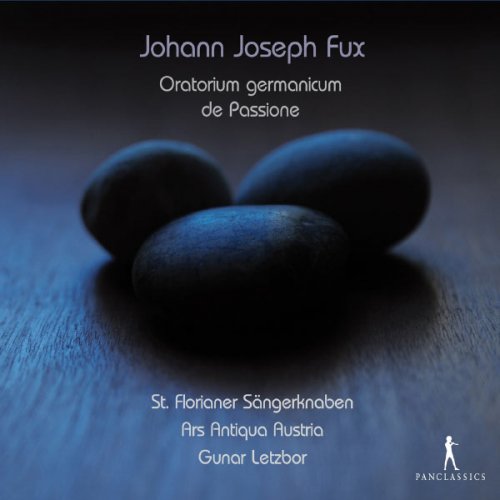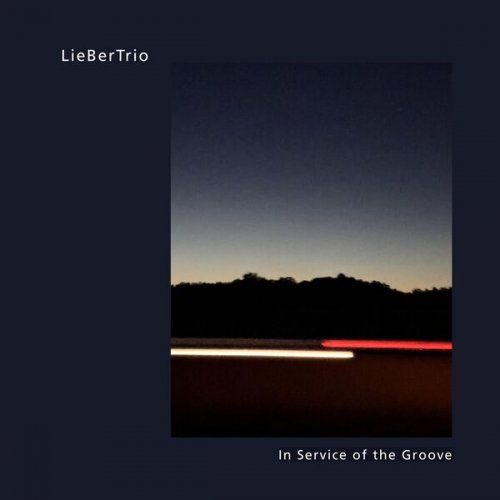St. Florian Boys' Choir & Ars Antiqua, Gunar Letzbor - Johann Joseph Fux: Oratorium germanicum de Passione (2013)

Artist: St. Florian Boys' Choir, Ars Antiqua, Gunar Letzbor
Title: Johann Joseph Fux: Oratorium germanicum de Passione
Year Of Release: 2013
Label: Pan Classics
Genre: Classical
Quality: flac lossless +Booklet
Total Time: 01:02:13
Total Size: 262 mb
WebSite: Album Preview
TracklistTitle: Johann Joseph Fux: Oratorium germanicum de Passione
Year Of Release: 2013
Label: Pan Classics
Genre: Classical
Quality: flac lossless +Booklet
Total Time: 01:02:13
Total Size: 262 mb
WebSite: Album Preview
---------
01. Oratorium germanicum de Passione Domini: Symphony: Adagio
02. Oratorium germanicum de Passione Domini: Symphony: Vivace
03. Oratorium germanicum de Passione Domini: Recitative: Ach! Mich unglickselige (Andromeda)
04. Oratorium germanicum de Passione Domini: Aria: Freyheit ist mir unbenohmen (Andromeda)
05. Oratorium germanicum de Passione Domini: Recitative: Was hilft all dein khlagen? (Kassiopeia, Andromeda)
06. Oratorium germanicum de Passione Domini: Aria: Die gleiche Sind begangen (Kassiopeia)
07. Oratorium germanicum de Passione Domini: Recitative: O himmel hort ihr nicht (Andromeda)
08. Oratorium germanicum de Passione Domini: Aria: Mit mir armen tragt erbarmen (Andromeda)
09. Oratorium germanicum de Passione Domini: Recitative: Was da, was soll daz streitten sein (Nemesis, Andromeda)
10. Oratorium germanicum de Passione Domini: Aria: Euer Bosheit zu bestrafen (Nemesis)
11. Oratorium germanicum de Passione Domini: Recitative: Nun mehro ist umbsonst (Andromeda)
12. Oratorium germanicum de Passione Domini: Aria: Nicht verzoge meine Freindin (Perseus)
13. Oratorium germanicum de Passione Domini: Recitative: Wer ist zu meiner Rettung (Andromeda, Perseus)
14. Oratorium germanicum de Passione Domini: Duet: Dir Zuliebe kham ich eben (Andromeda, Perseus)
15. Oratorium germanicum de Passione Domini: Recitative: Schaut nur den Erloser schon (Furor, Perseus)
16. Oratorium germanicum de Passione Domini: Aria: Strikh und Khotten (Furor)
17. Oratorium germanicum de Passione Domini: Recitative: Siehe mein geliebtes Verlangen (Perseus, Andromeda)
18. Oratorium germanicum de Passione Domini: Aria: Ja todet nur (Perseus)
19. Oratorium germanicum de Passione Domini: Recitative: O Sundt, was ybels bringstu nicht zuwegen (Andromeda, Kassiopeia, Perseus)
20. Oratorium germanicum de Passione Domini: Trio: Siehe doch mein werthes khinde (Andromeda, Kassiopeia, Perseus)
21. Oratorium germanicum de Passione Domini: Recitative: Nunmehro ist unser Muth (Furor)
22. Oratorium germanicum de Passione Domini: Aria: Recht die Burgen (Furor)
23. Oratorium germanicum de Passione Domini: Recitative: Schaue mein geliebte Seele (Perseus, Andromeda)
24. Oratorium germanicum de Passione Domini: Aria: Weld und Holle (Kassiopeia)
25. Oratorium germanicum de Passione Domini: Recitative: Es ist nunmehro (Perseus, Kassiopeia, Nemesis, Andromeda)
26. Oratorium germanicum de Passione Domini: Finale: Alles Trauren alles Seufftzen (Chorus)
The Oratorium 'Germanicum de Passione', composed in 1731, is the only oratorio in the German language by the Viennese court composer Johann Joseph Fux. The work was long considered lost; aside from a handwritten textbook in Kremsmünster Abbey, no other sources appeared to have been preserved. In 2004, a score from Ottobeuren Abbey incorrectly attributed to Antonio Caldara could be identified as identical to the Fux oratorio believed to have been lost; this work has now been recorded for the first time by Gunar Letzbor, his Ensemble Ars Antiqua Austria and soloists of the St. Florian Boys' Choir.
The ancient myth of Andromeda and Perseus is interpreted by the librettist Heinrich Rademin as an allegory of the Passion of Christ: the daughter (Andromeda) must make atonement for the guilt of her mother (Cassiopeia); she is ultimately freed by Perseus and taken as his wife. In the Christian interpretation, this signifies the forgiveness of original sin through the death of Jesus Christ and his marriage with the human soul, to which the final chorus refers in all clarity. Fux’s oratorio, which can probably be regarded as one of the master's final compositions, is truly state of the art. This elaborate work offers convincing proof, once again, that its creator was probably one of the best contrapuntists of his time.
![Sibel Köse Septet - In Good Company (2025) [Hi-Res] Sibel Köse Septet - In Good Company (2025) [Hi-Res]](https://www.dibpic.com/uploads/posts/2025-12/1765846644_uizwujac4ht2d_600.jpg)
![Zbigniew Namyslowski Modern Jazz Quartet - Lola (Remastered 2025) (2025) [Hi-Res] Zbigniew Namyslowski Modern Jazz Quartet - Lola (Remastered 2025) (2025) [Hi-Res]](https://www.dibpic.com/uploads/posts/2025-12/1765509687_cover.jpg)






